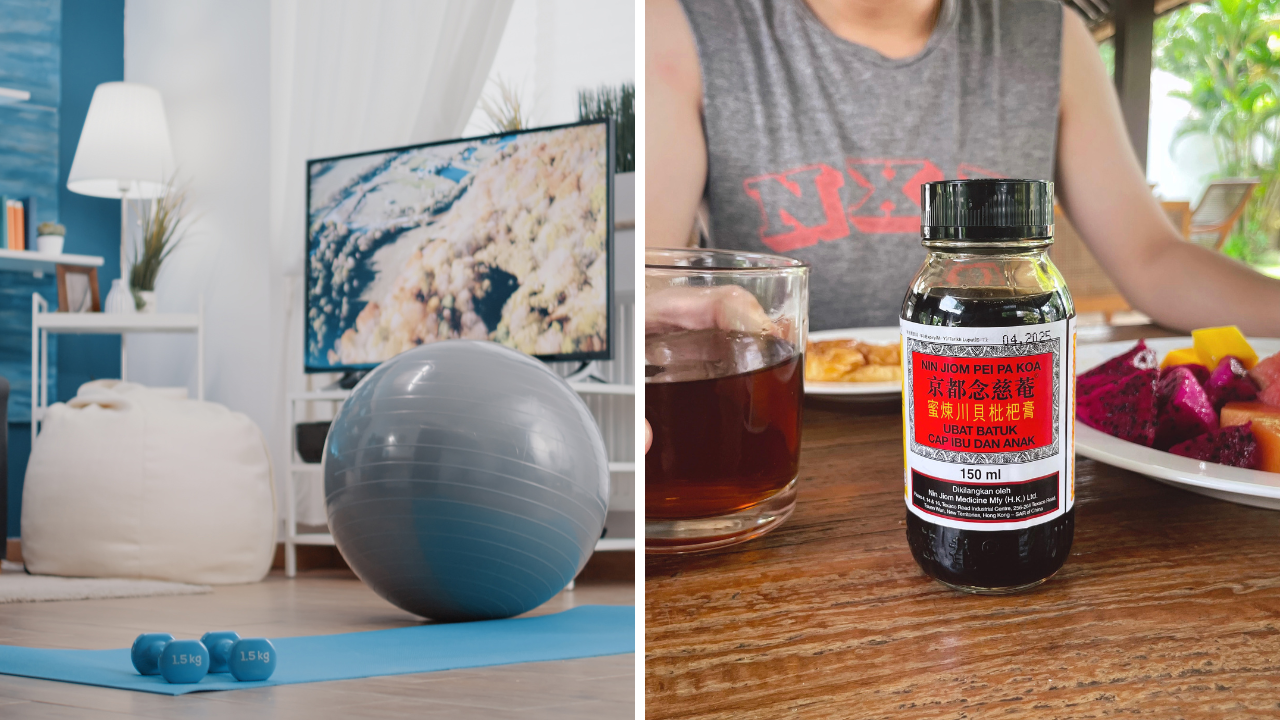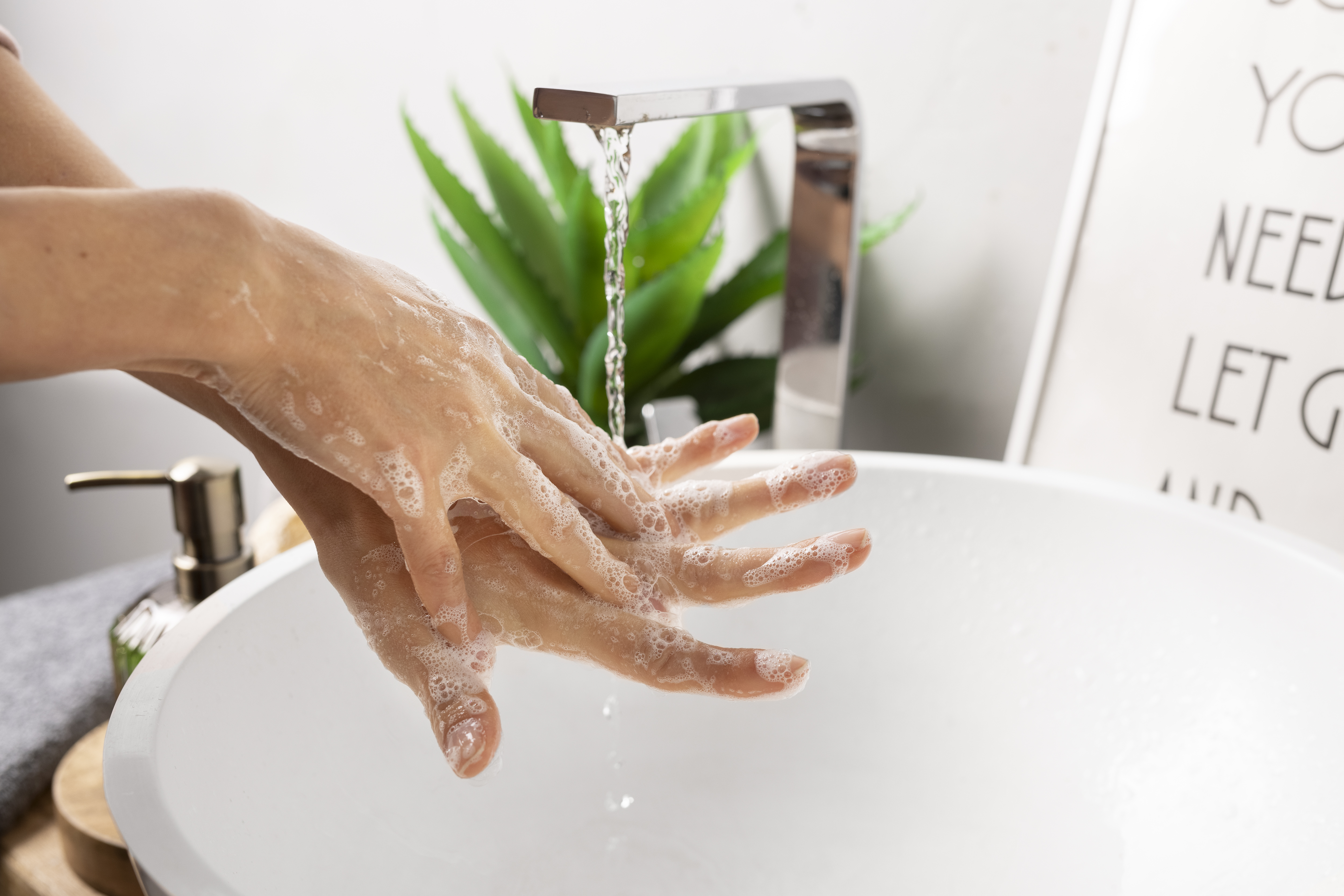Each season brings its own difficulties but none are more challenging than the monsoon season. From floods to illnesses, the Northeast Monsoon season from November to March and the Southwest Monsoon from May to September are times of traffic jams on the roads and at doctors offices.
Why do people fall sick during rainy seasons?
.jpg)
Photo by benzoix on Freepik
To understand why more people are falling ill we found this article by Dr M. Murallitharan. In his article for FMT, he shared that masking restrictions were beneficial to stop not only the spread of Covid-19 but other airborne diseases.
With the relaxing of SOPs he shared common cold symptoms have become more aggressive and severe with reports of some children suffering from two up to three viral infections at the same time.
“Well, as Covid slowly goes away, many other acute infectious diseases, especially of the viral family, which have not been as actively spread in the public seem to be coming out to play,” he shared.
As for people falling sick due to the rain, DOC2US, an online doctor provider, shared this:
“Rain does not make your child sick, it weakens the body, making it vulnerable to viruses and bacteria, especially the common cold, or what we like to call flu.”
Rain in itself does not make someone sick, but the drop in temperature temporarily weakens the immune system and our bodies become more prone to sickness. So, if you’ve just come in from even some light rain, your body’s temperature is lowered, immunity is lowered, and a simple cough or sneeze from someone nearby can cause any number of infectious diseases.
How can we prevent illnesses and keep our immunity up?
1. Get dry as soon as you can and warm up

Photo by prostooleh on Freepik
Hypothermia is a scary word but it simply means hypo = low, thermia = temperature. In severe cases it can lead to shivering, exhaustion, slurred speech or drowsiness. In children you can observe low energy and bright red, cold skin.
When your body remains in a hypothermic state for longer, you are exposed to more airborne diseases. Drying yourself after a warm shower heats your body up and helps to regulate your body temperature.
2. Keep your immunity up
 Photo by DCStudio on Freepik
Photo by DCStudio on FreepikHealthy food and exercise keeps our immunity up. So even in rainy weather, try to get in a short workout every day and continue to eat food rich in vitamins.
Examples of this that are easily found in Malaysia are broccoli, eggs, tropical fruits like papaya, and fish.
Vitamin C is a well-known immunity booster and according to a report, guava is the most Vitamin C dense fruit, followed by red capsicum, and kiwi.
Natural remedies like the Ubat Batuk Cap Ibu dan Anak (Nin Jiom Pei Pa Koa) can help in nourishing the lung or providing relief for sore throats if you’re already sick. One of the natural ingredients in the yummy drink is honey and drinking it helps you stay hydrated.
Adults can take one teaspoon, 3 times a day with or without meals and children, 3 to 6 should take 1.7ml per session while 7- to 12-year-olds can take 3.3ml per session.
Supplement your healthy eating habit with healthy exercises habits that are easy to do. The humble squat for example even helps boost bone mineral density for stronger bones and star jumps activates muscle groups across your body.
Pair them with push ups and stretches to build strength and dexterity.
3. Resume sanitising, washing of hands, and masking
 Photo by Freepik
Photo by FreepikAs we’ve mentioned earlier, the Covid-19 prevention SOPs introduced previously work well in the prevention of diseases. If you fear becoming unwell due to the change in temperature it’s totally okay to mask up again (many Malaysians still are). It is also everyone’s responsibility to look after each other’s health.
If you’re wondering what soap you should use while washing your hands, always choose liquid soaps over bar soaps as germs can live on bar soap (skin infections can be passed on this way).
Antibacterial soap is no more effective than plain soap and the soap must be left on your hands for more than 2 minutes for it to have any effect on bacteria.
Also, avoid using dish soap as a substitute for hand soap if you can. Phosphates, dyes, and bleach in most dish soaps are particularly rough on your hands and dish soap is not formulated for your hands.
Children especially will benefit from proper hand washing regularly, masking, and santising. As they say, prevention is better than a cure.
4. Take care of your mental health

Photo by pressfoto on Freepik
According to The Atlanta Journal-Constitution, “Depression and stress suppress the immune system, making patients affected by chronic stress or depression more prone to infection, metabolic disease and cancer.”
Though it may be a bit reductive to simply say “Rilek la bro”, there’s real science behind taking things easy.
If you’re having trouble relaxing, try to work breaks into your schedule. Put intentional relaxation time within your work day to break up the monotony of work or studies.
A study by WHO found that 20% of adolescents may experience mental health issues in any given year so it’s prudent to be mindful of your mental health. That means, 1 in 5 of your friends may be experiencing issues.
Take 15 minutes every few hours to practise gratitude for the things you have and focus on the positive things in your life. Mental health is a journey so don’t be discouraged if you don’t feel it yet. Your emotions will catch up with your thoughts.
If you’re looking for a healthy 4-in-1 action natural remedy to keep you strong this rainy season, visit https://my.ninjiom.com/pages/nin-jiom-pei-pa-koa-series to find out more about Ubat Batuk Cap Ibu dan Anak (Nin Jiom Pei Pa Koa) and the benefits of including it into your daily routine.
Cover Image: Joydeep Sensarma on Unsplash, wirestock & benzoix on Freepik





